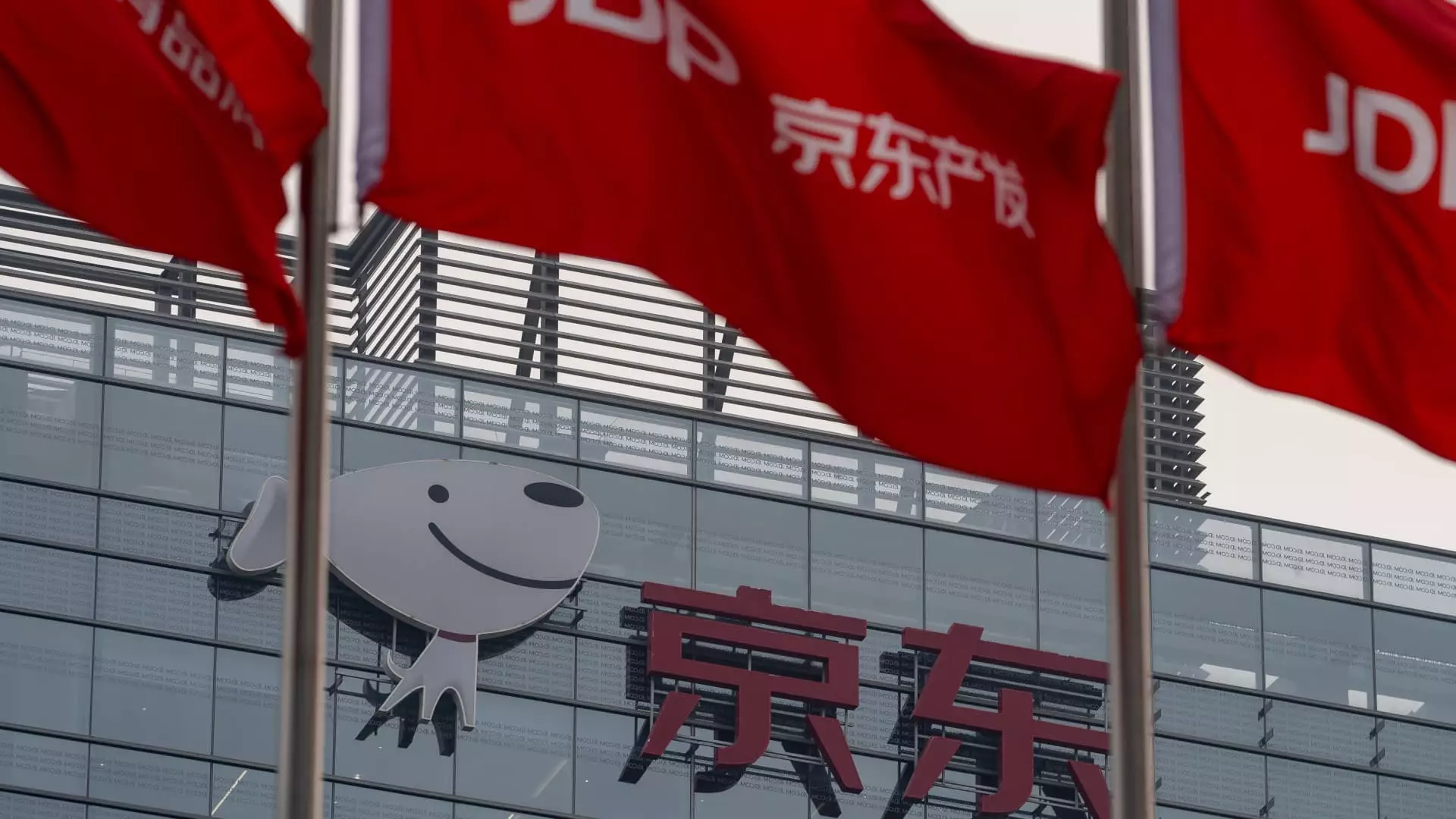Following the announcement of JD.com’s $5 billion buyback, the company’s Hong Kong-listed shares experienced a modest increase of 1.2% on Wednesday. This positive movement contrasted with the overall decline on the Hang Seng index, illustrating investor confidence in JD.com’s strategic decision. Similarly, U.S.-listed shares of the company rose by 2.24%, indicating a favorable reaction from investors in the American market as well.
Despite the recent uptick in share prices, JD.com’s performance throughout the year has been lackluster, with both Hong Kong and U.S. shares declining by approximately 20% year-to-date. In comparison, the Hang Seng index has shown resilience, only dropping by 0.82% on Wednesday and maintaining a 4% increase for the year so far. This discrepancy raises questions about the underlying factors contributing to JD.com’s stagnation amidst general market growth.
The decision to initiate a $5 billion buyback marks JD.com’s second repurchase program in 2023, following a $3 billion buyback earlier in March. Chelsey Tam, a senior equity analyst at Morningstar, noted that such buyback announcements are not uncommon in China, particularly when companies face low share prices and growth prospects. The recent increase in Vipshop’s buyback program further underscores this trend within the Chinese e-commerce sector, which has been grappling with challenges stemming from a sluggish domestic economy.
The broader landscape of China’s e-commerce industry has been marred by disappointing financial results, as evidenced by Alibaba’s second-quarter underperformance in both revenue and profit metrics. Similarly, Pinduoduo, under the ownership of Temu, faced a significant downturn following its second-quarter results shortfall. These setbacks have prompted industry giants like Alibaba to pursue significant buyback initiatives, such as the $25 billion share repurchase announced earlier this year.
JD.com’s decision to pursue a $5 billion buyback reflects a cautious optimism amidst challenging market conditions. While the immediate market response has been positive, the company’s long-term performance remains a point of concern, especially in light of sustained share price depreciation. As the e-commerce sector in China navigates economic headwinds, strategic initiatives like buyback programs may offer temporary respite but do little to address fundamental issues affecting industry players.

